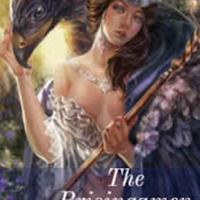Three and One Are One
Three and one are one
Barr Lassiter was a young man. He lived with his parents and an elder sister near Carthage, in the state of Tennessee.
The Lassiters were simple farmers. Their farm was small and the family was poor. They did not have enough money to own slaves. But although they were poor, the Lassiters were never hungry. They grew enough food for themselves.
When the Civil War began, Barr was twenty-two years old. The war divided many families. Children disagreed with their parents and grandparents. Nieces and nephews disagreed with their uncles and aunts. Sisters, brothers and cousins disagreed with each other. Most people in the northern states believed that slavery was wrong. Many southerners had owned slaves for many years. They did not want the government in the north to tell them what to do. Barr Lassiter supported the Unionists. The rest of his family supported the Confederates.
Barr could not live in the house. And he did not want to fight for the Confederate Army. He wanted to join the Union Army. When he left the farm, Barr's family did not try to stop him. And they did not say goodbye.
Barr joined the Union Army and became a cavalryman. The two armies fought in the northern stares and then the southern states. Barr did not return to Carthage for two years. That part of Tennessee had first been controlled by the Union Army. Then it was controlled by the Confederate Army. Now the Unionists were in control again. Many farms and plantations in the south were destroyed. A terrible battle had been fought near Carthage. Many men from both armies had been killed.
Barr spoke to his commanding officer.
"Sir, my home is near here," he said. "I want to see my family. May I visit them?"
"You can have two days' leave," the officer replied.
Barr Lassiter walked across the fields near Carthage, toward his home. It was late in the afternoon when the young man reached his family's farm. The shadows were becoming longer and darker. Before he reached the farmhouse, the sun had set.
"Will my family welcome me?" he asked himself. "I've been away for two years. Have they changed their minds about the war? War changes many things. I've seen and done many terrible things. I'm only twenty-four, but I feel like an old man."
The moon was now shining in the dark sky. Barr walked up to his home. No lights shone from the windows, and the door was wide open. Suddenly, a man came out of the house. "Father!" the young man called out. "Father!"
The man looked at his son, but said nothing. He turned around and went back into the house.
Barr was very disappointed. He was not welcome in his own home. But he entered the house, and went into the kitchen.
His mother was sitting by the fireplace. No fire was lit and no food was cooking. The fireplace was filled with cold, black ash.
"Mother!" the young man called out. "Mother!
She looked at him, but she did not speak. Barr moved closer. He wanted to put his hand on his mother's shoulder.
Then suddenly Barr's sister came into the room. She looked at her brother, but said nothing. She turned around and left. Barr turned back to his mother. But she had left the room too. His family did not want him there.
Barr walked to the front door and looked outside. The moonlight shone on the garden. The long grass moved slowly backward and forward. It looked as if it was moving under water. The wind blew and the trees and their black shadows moved. It was a sad and strange scene. Barr felt tears on his face. He walked back to the army camp.
Barr was tired when he awoke the next day. He had not slept well-he had dreamed strange dreams.
"Did I walk home?" he asked himself. "Or did I dream about my walk to Carthage? Did my family turn away from me? I'm not sure. I must go back to the farm."
He had not walked far, when he met his friend-Bushrod Albro. Barr had known Bushrod for many years. They had attended the same school.
"I'm going home," said the cavalryman. "I'm going to visit my family."
Bushrod looked quickly at Barr, but said nothing. Barr did not notice his friend's silence. He continued talking.
"I know that my family haven't changed their minds," he said. "But-"
"There have been changes," Bushrod said. "I'll go with you. We can talk as we go."
Bushrod did not talk on the journey. He was silent until they reached the farm.
Instead of a farmhouse, the two friends found only broken walls that had been burned by fire. All the doors, windows and furniture had burned. They had become black ash.
Barr stared in astonishment.
"I didn't know how to tell you the truth," said Bushrod "A year ago, there was a battle here. Your house was hit by Yankee shells. There was a fire."
"And my family-where are they?"
"They're in Heaven, I hope," replied Bushrod. "They were all killed when the house was destroyed."
- THE END -

